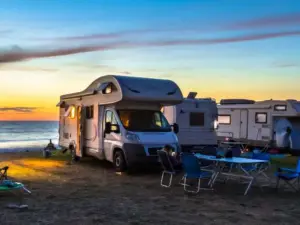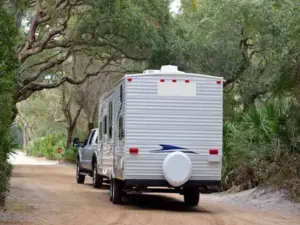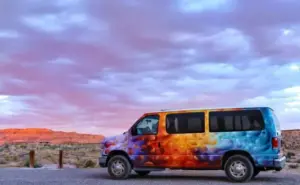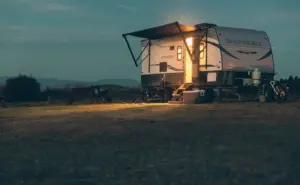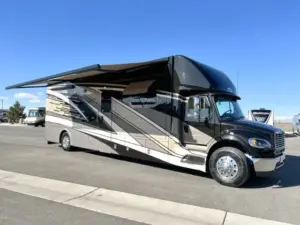An often understated but important factor that warrants strong consideration when purchasing a boat or recreational vehicle (RV) is the storage facility. In fact, it’s one of the first few things you’d love to get sorted out along with your prized purchase.
But what makes a good storage facility? Is it enough that it has a good size and spacing? What about accessibility? Is it possible to get to your vehicle any time or will there be a schedule that you’d need to keep track of? What about security?
Fortunately, RV storage facilities across the country have shown great regard in addressing the pain points we’ve just mentioned. Even better, this post is all about guiding RV owners on their search for the perfect storage unit during off-season. Let’s take a look at some of the notable factors that will help you find a suitable storage facility for your boat and RV.
Read here about how to winterize your travel trailer.
Read here about microwave for an RV.

Things to Consider When Looking for RV and Boat Storage Space
You’ll slowly find some of your preferences once you start considering storage options for your recreational vehicles. But being able to set your priorities and learning key tricks of the trade will help you put things in a better perspective.
Type of Storage
The sooner you’re able to outline the type of storage you need, the more efficient your search will become. If this is all new to you, here’s a rundown of different storage types and how they could serve your needs.
RV and Boat Storage Vs Self Storage
An RV and boat storage is a specialized facility that can house your vessel whenever you need to be away from your thrill-seeking exploits. A self-storage, on the other hand, is an all-purpose facility that can accommodate furniture, household items and personal belongings. Since it comes in various sizes and configurations, it can even accommodate a boat or an RV in some instances.
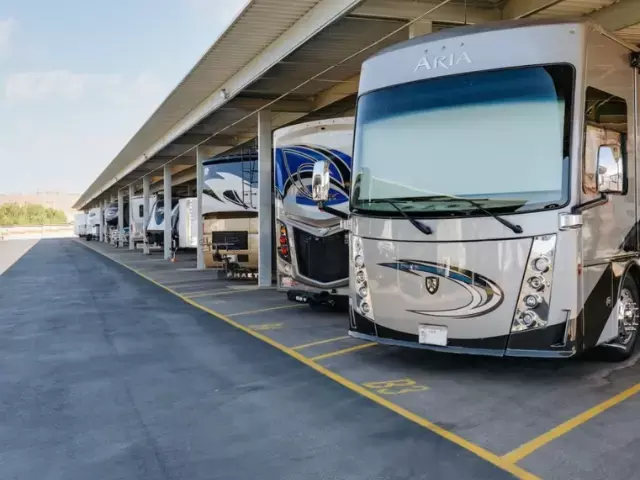
Open Storage Vs Covered Storage Vs Enclosed Storage
Open storage areas typically cost less than sheltered facilities. Thus, if you’re in for extra savings or don’t see yourself being away from your vehicle that long, then an open storage seems like a fair choice.
A covered storage, while more expensive, can also lead to some valuable savings when it comes to maintenance costs. This is simply because the overhead coverage can protect your vessel from weather and elements that tend to hasten wear and tear. Enclosed storage, meanwhile, is a fully sealed or walled-off storage that can protect your boat or RV from external conditions, as well from thieves, pests and even vandalism. It can get pricey but it’s not hard to see why this is the most optimal option in most cases.
Space
Space allocation and management is vital when choosing a storage facility. But aside from storage space, we recommend giving accessibility a more weighted consideration.
From our experience, the minimum driveway width in a storage for recreational vehicles should not be below 50 feet wide in order to maintain easy access and parking. Notably, however, self-storage units tend to have a lower threshold.
When factoring space, you can also consider an extra leeway for additional equipment. You’ll never know when you might be needing it, but simply having extra room to work with is never a bad thing. It’s an added convenience in case you need a makeshift workshop or your rig suddenly requires standard maintenance.
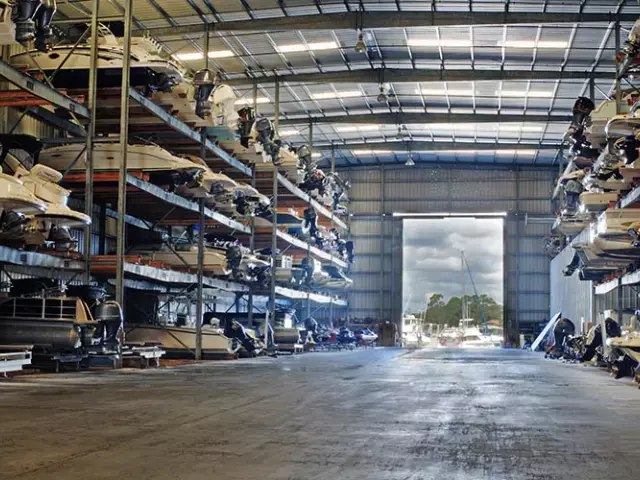
Rent
Traditional self-storage usually costs more than a boat and RV storage facility. This is to be expected since the former is more versatile. When it comes to rental cost, a lot of factors tend to fall outside of your control.
Where you can take charge, however, is maximizing the value of the storage facility. For example, renting a covered or enclosed storage is a significantly better long-term option if you are leaving your vehicle idle for months. It keeps the vessel sheltered from harsh conditions and provides you with ease of mind that seems elusive when you know your boat or RV is parked in the open.
Lastly, take time to carefully read the terms and insurance options. Sometimes, small differences in insurance coverage can spell the difference between seemingly identical storage options.
How Much Does RV and Boat Storage Cost?
The cost of service varies but you can expect lower rates from standard RV and boat storage facilities compared to multipurpose self-storage. It can also work the other way around in some cases.
Regardless, rent isn’t the be-all and end-all when it comes to choosing a shelter for your rig. Even if you’re working on a budget, it’s still wise to take your time looking around several places with relatively similar rates until you find the one most suited to your needs.
When it comes to contract length, arrangements can last for a period of three to six months, although monthly calculations are also available from companies that support short-term rentals.
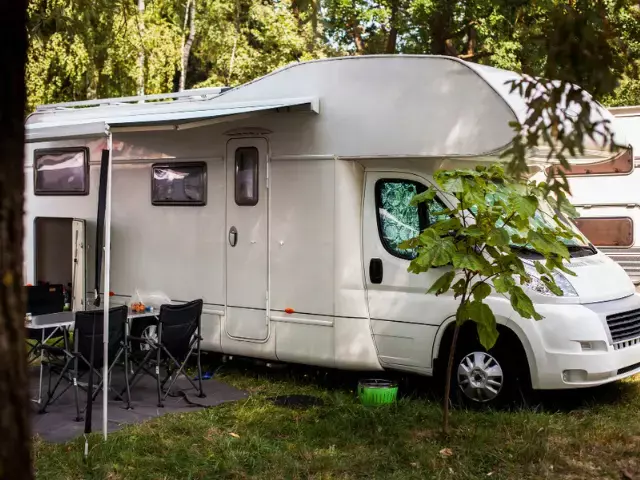
RV Storage
RV storage units often come with interesting and respectable add-ons, which means you can even get more than just an extended garage. For example, rentals may offer pre- and post-departure services such as washing and maintenance for a premium.
Boat Storage
An RV boat storage works as an inland facility for smaller boats and RV or as a safe haven near a shore or harbor for large vessels.
Small boat owners will often find themselves looking at rates closer to that of a standard RV storage. Meanwhile, it can set you back a hundred dollars more to directly dock a large boat from a nearby a port, river or lake to the storage unit.
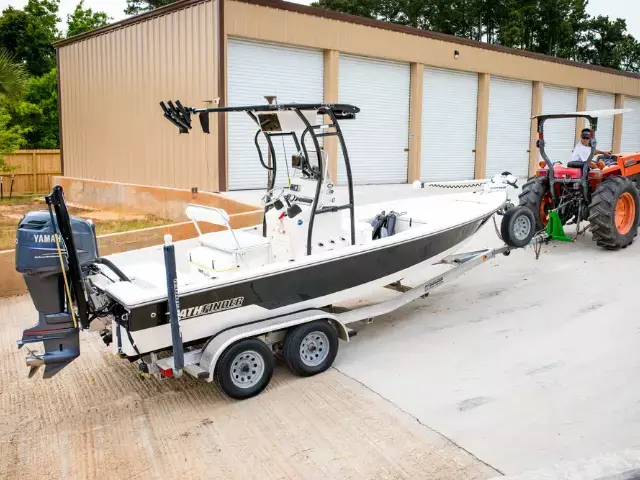
Is RV and Boat Storage Secure?
Safety is paramount among storage facilities. Although, it’s inevitable that security features differ from one provider to another.
A lot of companies allow shared access where people can come and go, which is convenient for everyone and a security risk at the same time. With that in mind, companies with a clear 24/7 security program is definitely a good place to start and shouldn’t be taken for granted.
And while there are no one-size-fit-all solution for storage and parking spaces, there’s no shame on setting high expectations to match the times. However, while it’s fair to look out for for high-resolution cameras, good lighting and on-site personnel, you mustn’t forget your own responsibility in augmenting security by limiting valuables and regularly checking on your vehicle.
RV and Boat Storage Companies
There are many storage facilities across the country, either as a dedicated RV and boat hub or a self-storage. Companies like Storage King USA even offer a modernized contact-free rental process where your security credentials are provided online. Therefore, you’ll only need to visit the storage facility until you are ready to store your vehicle.
On the other hand, Compass, which offers self-storage solutions is also known for having multiple locations and wide coverage across RV hot spots in the US. On balance, you should find similar rentals or other notable storage facilities with their own set of advantages. The key is knowing what to look out for so that you can maximize the value of whatever options are available to you. With that said, we hope this guide brings you another step closer to securing not only your ideal rig but also the storage facility best suited for your vehicle and lifestyle choices!


